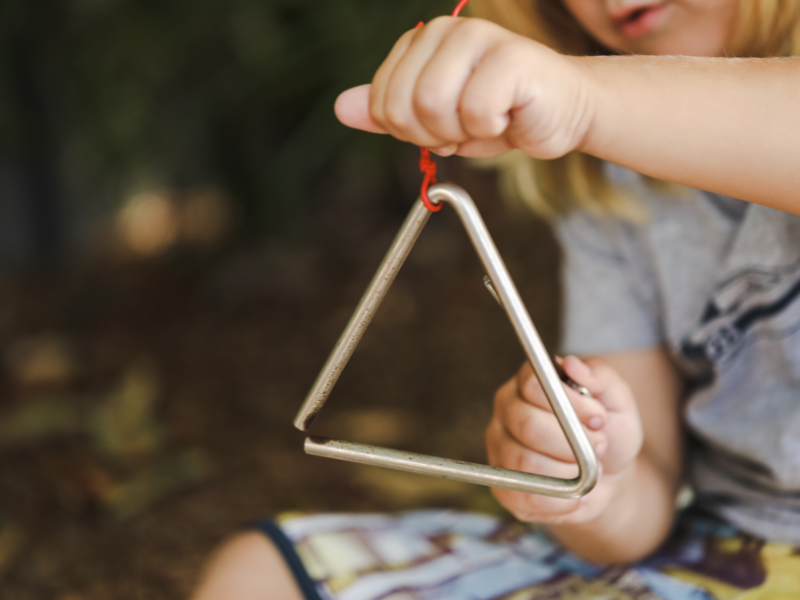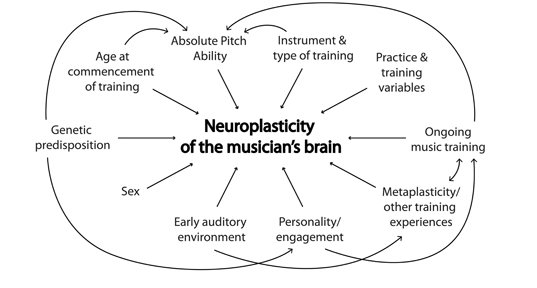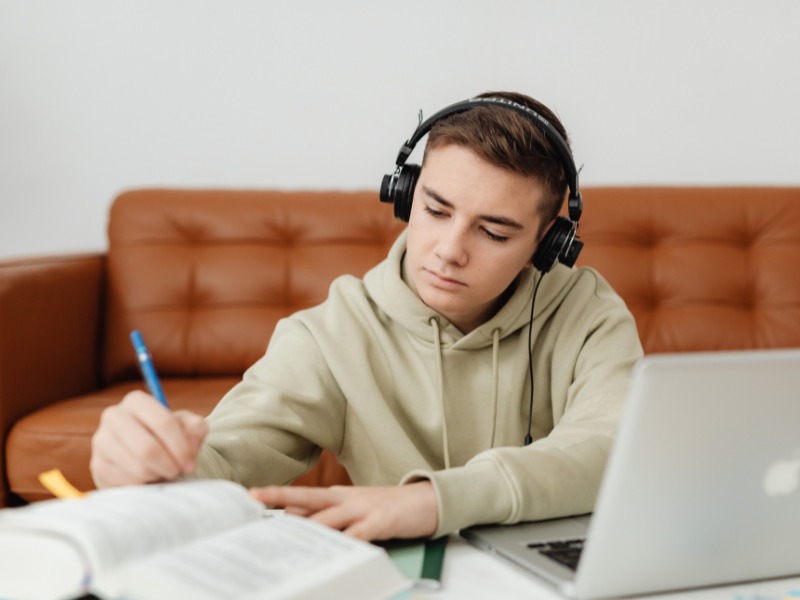Here’s how to train your brain!

Want to ‘train your brain’? Forget apps, learn a musical instrument!
We have shared this article because it is a good way to look at the impact of music learning on the brain when compared to the more modern and technological approaches to brain development, enhancement or improvement.
There is an interesting term in this article – experience-dependent plasticity. Here is a good plain language definition that also happens to include a musical reference:
“Experience-Dependent Plasticity is the continuing process of the creation and organization of neuron connections that occurs as a result of a person’s life experiences. Differing life situations and circumstance influence how certain areas of the brain develop and continue to grow. Research has shown that animals raised in a complex and engaging environment have more dendrite development and more overall synapses than do animals who are raised in an environment with no stimulating or engaging features. This has been shown in human brains as well with violinists and Braille readers having an increased cortical development in the section of the brain that corresponded to the fingers of the left hand (which is used predominantly when playing the violin or reading Braille).” Read more about this here.
For musical leaning there are a large number of variables that need to be considered – the age that music learning commenced; how long; frequent and intensive the music learning was; what instrument (if any) was the music learning done through; what pedagogy was used; what social environment was the music learning undertaken in; was the music learning done in a group or individually or both; what was the socioeconomic; cultural; social influence; what was the parents’ and especially the mother’s educational background and what kind of performance outcomes and mentors/role models were involved? These are only a few of the considerations.
An excellent paper and image to go along with this article come from Dawn Merrett who looked into these exact factors.

What if you could advocate for music education without adding more work to your already packed schedule?
Engaging in musical activities offers profound benefits for our brains, enhancing various cognitive functions and emotional well-being.
While there can only be one winner of the BBB Music Teacher Award, we also recognize the outstanding efforts of our 2025 Runner-Up, Ruby Mensforth—a teacher whose dedication to fostering a love of music has left a lasting impact on her students.
Playing an instrument or singing in a choir isn’t just fun—it’s great for brain health too. A recent study found that people with musical experience have stronger memory and thinking skills than those without.
For many music teachers, March means concert season, assessment planning, and advocating for the importance of music education as budgets and schedules for next year take shape.
We know that speaking up for music in schools can feel overwhelming—but you don’t have to do it alone.
If you've ever conducted or played in an ensemble, you’ve likely felt it—that moment when everything clicks, the music soars, and your group performs at a level beyond anything you thought possible.
The World Economic Forum's Future of Jobs Report 2025 highlights the critical skills that will define the workforce of tomorrow.
A recent study in Ear and Hearing investigated how aging and hearing loss influence music perception, focusing on melody and timbre discrimination.
A new study in the Journal of Neuroscience reveals that our brains start processing rhythm as early as 27 weeks into pregnancy.
The 2025 Celebrate to Advocate Calendar is your go-to guide for making advocacy effortless this year!
A recent study from Waseda University has uncovered that when individuals listen to music, their heart rates synchronize, reflecting a unified physiological response.
A groundbreaking study in Nature Human Behaviour has revealed a fascinating genetic connection between musical rhythm skills and language-related traits, including dyslexia.
Recent research from the Georgia Institute of Technology has unveiled compelling insights into how music affects learning, memory, and emotions.
A recent study from Aarhus University reveals that while older adults can remember familiar music as well as younger individuals, their brains engage differently during the process.
Take our free, 60 second quiz and maximize your advocacy impact by discovering your advocacy style and knowledge gaps.
Thank you for a wonderful 2024! Here’s a little gift from BBBB to you.
Music has always been a go-to for lifting our spirits, but did you know classical music might take it a step further by actually helping treat depression?
Founder of Bigger Better Brains, Dr Anita Collins, receives hundreds of emails from students around the world asking questions about neuromusical research. So she decided to record a short video about the most asked questions she has received.



















